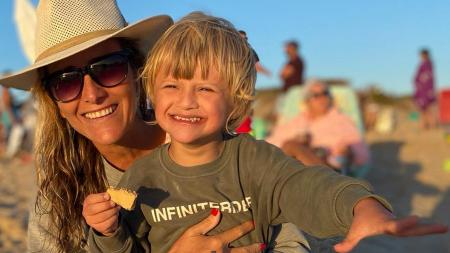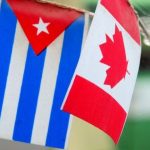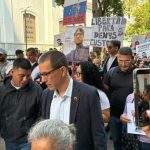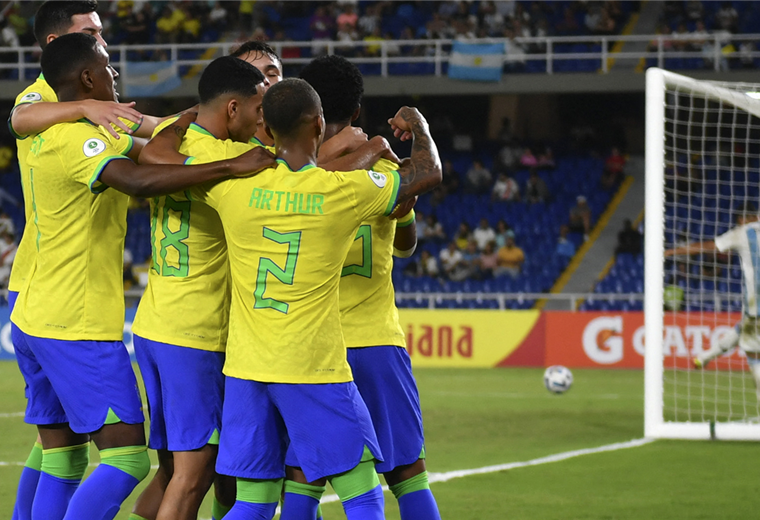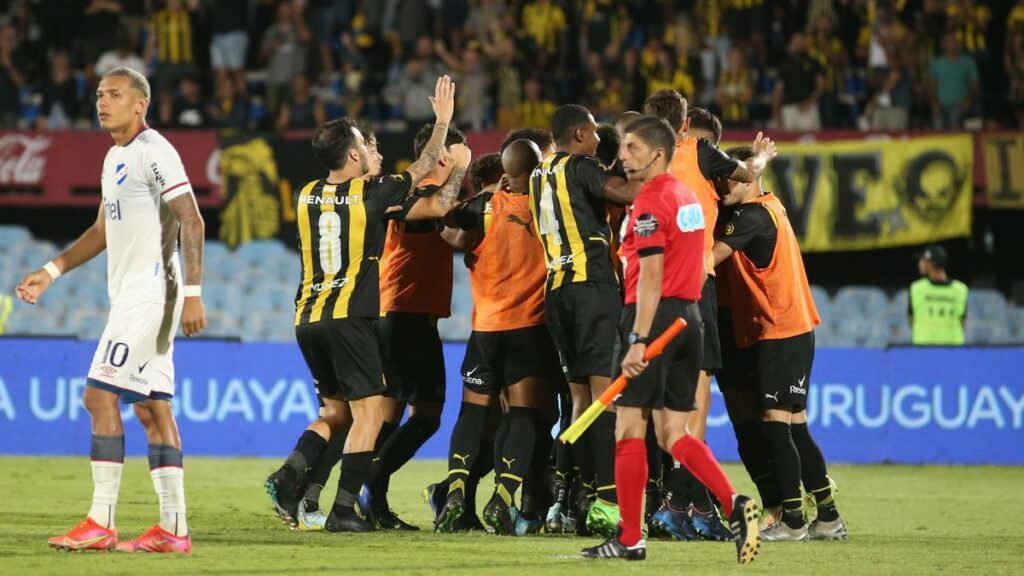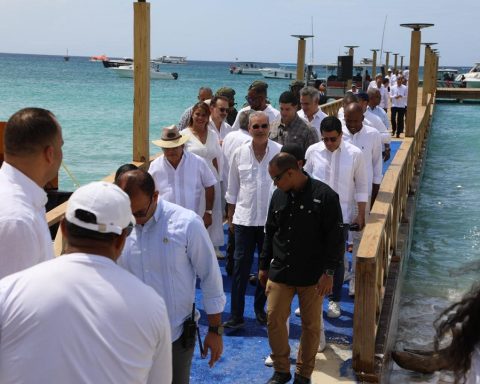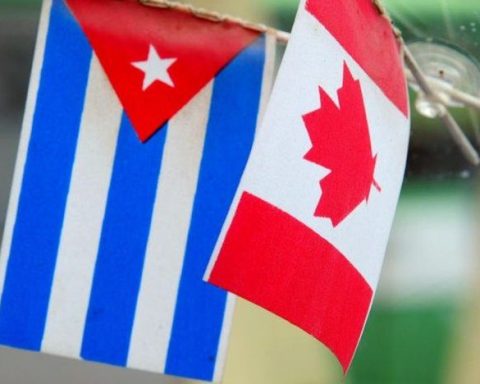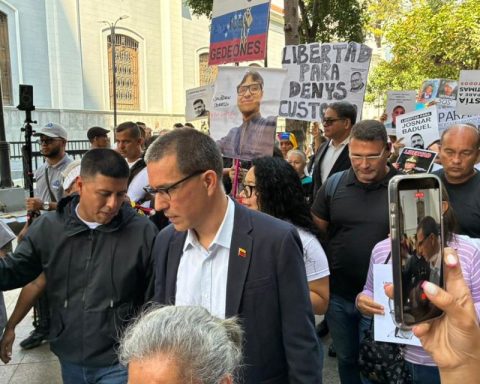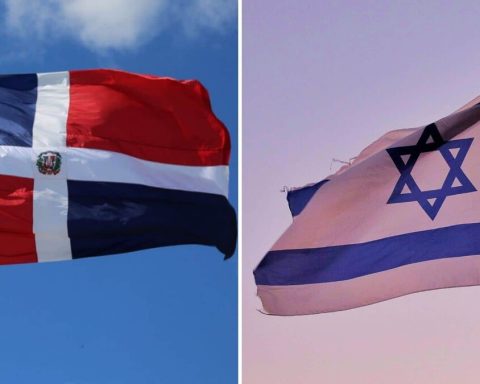Families of boys and girls with Down’s Syndrome assured this Monday that the communication of the diagnosis is usually the first obstacle they face as it is “usually” reported as “bad news”, which has a “strong” emotional impact, and they seek to guarantee greater awareness and training in health personnel from the Humanized Diagnosis bill, which will be dealt with in the Senate in extraordinary sessions.
“The diagnosis of Down syndrome It is never bad news, we have confirmed it with our children, but it is unexpected news that impactsOh, the medical staff must have the tools to be able to give,” Natalia Maidana, mother of Sofía (8), a girl with this genetic condition, explained to Télam.
However, he assured that it is a “common denominator” among families that the diagnosis is informed in a manner and at “inopportune” moments such as through a phone call or emailor even to the mother alone during a routine examination or even “in the middle of labor”.
“As soon as I gave birth, the doctor – who was also pregnant – was ‘shocked’ and left, leaving me alone, while two doctors began to talk to each other that the girl had Down syndrome,” she told Télam. Veronica Orsinimother of Sofía (6), who was unaware of her daughter’s genetic condition before birth.

This is how he received the first comments regarding his daughter’s diagnosis: in the delivery room and without having finished the cesarean section, when a doctor began to explain to him “about the chain of chromosomes.”
“The confirmation of the diagnosis was later, in a doctor’s office, with my husband standing, and just like that they told us,” said the mother, who added that “I didn’t understand what he was talking about, it was all tremendous.”
“With what it cost me to be a mother and with how expected Sofía was, they came to offer their condolences” (because of the diagnosis), Verónica recalled, and emphasized: “this is how we began our story, and the only thing we want is that you do not never pass on to other families.”
“Now Sofia is a girl full of charisma, who generates a lot of empathy in her friends and love in her brother,” she said with great emotion.
Similar stories “are constantly reiterated” throughout the country, said Natalia, a member of the Mamas Up organization in Córdoba, and who, with the collaboration of other organizations and medical specialists, promoted a bill that seeks to guarantee “the containment and accompaniment” to those who receive the diagnosis -prenatal or postnatal- of Trisomy 21 or Down syndrome.

“What we want is to work together with health professionals so that they provide communication with updated information, considering that today children can lead a perfectly integrated life,” said Natalia about the project that already has half a sanction in the Chamber of Deputies and expects to be dealt with in the Senate during this period of extraordinary sessions.
It is about achieving “a fully committed view of health personnel and humanize interpersonal communication in this diagnosis“, explained the pediatrician Fernando Burgos, an expert in Down syndrome and a member of the Argentine Society of Pediatrics.
Consulted by Télam, the specialist indicated that the early stimulation of the baby, which is “very necessary” in these cases, depends “on the stimulation that a doctor gives to a family when he gives a diagnosis.”
For this reason, he emphasized on communicating “taking his time, in a quiet place, with room for a empathic listening“, where they can report – if the family so wishes – “the instances that their baby is going to go through”, taking into account that “there are a lot of positive situations and that today that child can lead a normal life”.
The project, presented by Julio Cobos and Mario Fiadincludes training and ongoing training for health professionals on Down syndrome, a genetic condition with which some 1,200 boys and girls are born every year in Argentina, according to the National Registry of Congenital Anomalies.
“The impact of this communication is very great for parents because it conditions the first relationship and attachment with their baby, especially for those who have many prejudices about it”said Dolores Pisanomother of Matías (4) and founder of Cambiando la mirada, an organization dedicated to raising awareness about Trisomy 21.
“I had a lot of prejudices because I was very ignorant of the subject,” added Dolores, who found out about the diagnosis when she was about to retire after having an ultrasound and the “very unwise” doctor warned her that there was a “possibility of Down syndrome.”
“I was frozen, blocked, I was alone. That night was fateful, I thought that my son was not going to be happy,” recalled Matías’s mother, who assured today “he is a happy child, a genius.”
“The next day I went to see acquaintances who have a son with Trisomy 21 and from then on my job of accepting and informing myself to receive my son with happiness began,” he said.

“The moment of diagnosis is the cornerstone of the bond that you begin to build with your child,” he said. Anabel Langellottipsychologist specialized in perinatal health and mother of Amadeo (7), who was born prematurely and with this genetic condition that the parents were unaware of.
Due to his experience and training, he emphasized the need to “respect family times” to give the diagnosis, especially when it is postnatal.
“There is a very romanticized idea of birth and when it happens and it does not happen as is ‘the norm’ (because it is premature or was born with some condition) everything breaks down, it is hard for the parents. There it is necessary that the medical staff be able to carry tranquility and respect,” he asserted.
During the pregnancy, Anabel and her partner attended a prenatal course that they stopped attending early due to the premature arrival of Amadeo.
When they reported her birth and that “there was a possibility that she had Down syndrome,” as they had been told at the hospital, “we never received a response” from the woman who coordinated the workshop and with whom they were in permanent contact, Anabel said, that he considered that it was discrimination because of his son’s condition.
“That is why it is important that everyone who is in contact with pregnant women, not just doctors, have the training and awareness provided by law,” he concluded.
